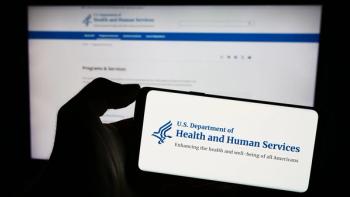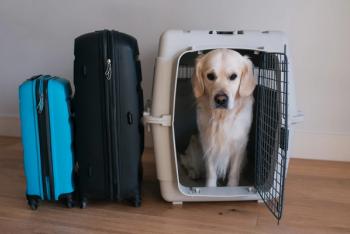
State DVMs face unpaid time off in California; UC-Davis spared
Sacramento - State-employed veterinarians will lose some work starting this moth to combat California's ever-mounting budget deficit.
SACRAMENTO, CALIF. — State-employed veterinarians will lose some work starting this month to combat California's ever-mounting budget deficit, and their paychecks could arrive in the form of IOUs sometime soon.
Mandatory furloughs, ordered by Gov. Arnold Schwarzenegger to cut costs in view of the state's more than $40 billion deficit, will apply to all state employees, which means veterinarians who work in the state food-animal programs and public health will be affected, says Lynelle Jolley, communications director for the state Department of Personnel Administration.
"It is our understanding that virtually all parts of the state's executive branch are subject to this furlough," Jolley says.
State offices will be closed on the first and third Fridays of every month as a part of Schwarzenegger's unpaid furloughs order, which is aimed at saving about $1.3 billion over the next 18 months, the governor's office says.
The state veterinarian's office confirmed that the furlough will extend to its staff, but the impact of the order is anyone's guess.
"At this point, we're still evaluating the impact. This is still in the early stages," says Steve Lyle, communications director for the Department of Food and Agriculture and spokesperson for the state veterinarian's office.
But it's expected that the furloughs probably will have the greatest impact on state food-animal veterinarians, according to Dr. Bill Grant II, California Veterinary Medical Association (CVMA) president.
"These guys are pretty busy with everything they need to inspect, and it could be a real problem," Grant says. "There's potential to slow down the commerce of these animals."
State veterinarians working in small-animal or exotic specialities might have an easier time rescheduling their duties around the furloughs, he says.
The governor's plan may seem like a drastic measure, but other fallout could come from the financial crisis. For each day legislators fail to pass the budget, California loses $40 million, according to the governor's office. Talks with Democrats and Republicans have gone nowhere, and the governor on Dec. 31 presented his most recent budget plan, which still includes a new 10 percent tax on veterinary service, first proposed in November.
The CVMA strongly opposes the tax and organized a grass-roots protest that resulted in thousands of letters to state leaders. The protest may be paying off, says Grant, explaining that the state began polling the public about the tax Jan. 16.
"Obviously we have had some impact on their thinking. At this point, we hope we have bipartisan legislation to oppose it," Grant says, adding that, as a practice owner in southern California, he has noticed firsthand over the last several weeks that more clients are having a hard time affording veterinary care.
"We're trying to do everything we can, but people are saying they just can't afford to do this," he says.
A 10 percent increase to bills from the tax, if it's adopted, won't help.
But without a better plan, the tax will be needed to generate revenue. Schwarzenegger says layoffs might be coming this month, and government workers might even start getting IOUs in lieu of paychecks.
One area that seems untouched by the furlough order is higher education, including schools like the University of California-Davis School of Veterinary Medicine. Like many colleges, UC-Davis receives state funding but governs its own employees. No forced furloughs will apply to UC-Davis faculty, says school spokesperson Lynn Narlesky, but the budget crunch is being felt in other ways around campus.
Several campus construction projects have been halted, and, though planning will continue on a new building at the veterinary school, that project also will be stopped once drawings are complete until state funding problems are resolved.
Other changes at the school include lowering fall freshman admissions by about 400 students at UC-Davis, or 2,300 across the whole UC system. Graduate enrollment will remain unchanged, the school says.
UC's board of regents approved a salary freeze Jan. 14 for senior university management for the remainder of the school year, a move that will affect nearly 300. No layoffs have been proposed.
Continuing updates on California's budget crisis and the effect it will have on the veterinary profession can be found at
Newsletter
From exam room tips to practice management insights, get trusted veterinary news delivered straight to your inbox—subscribe to dvm360.




